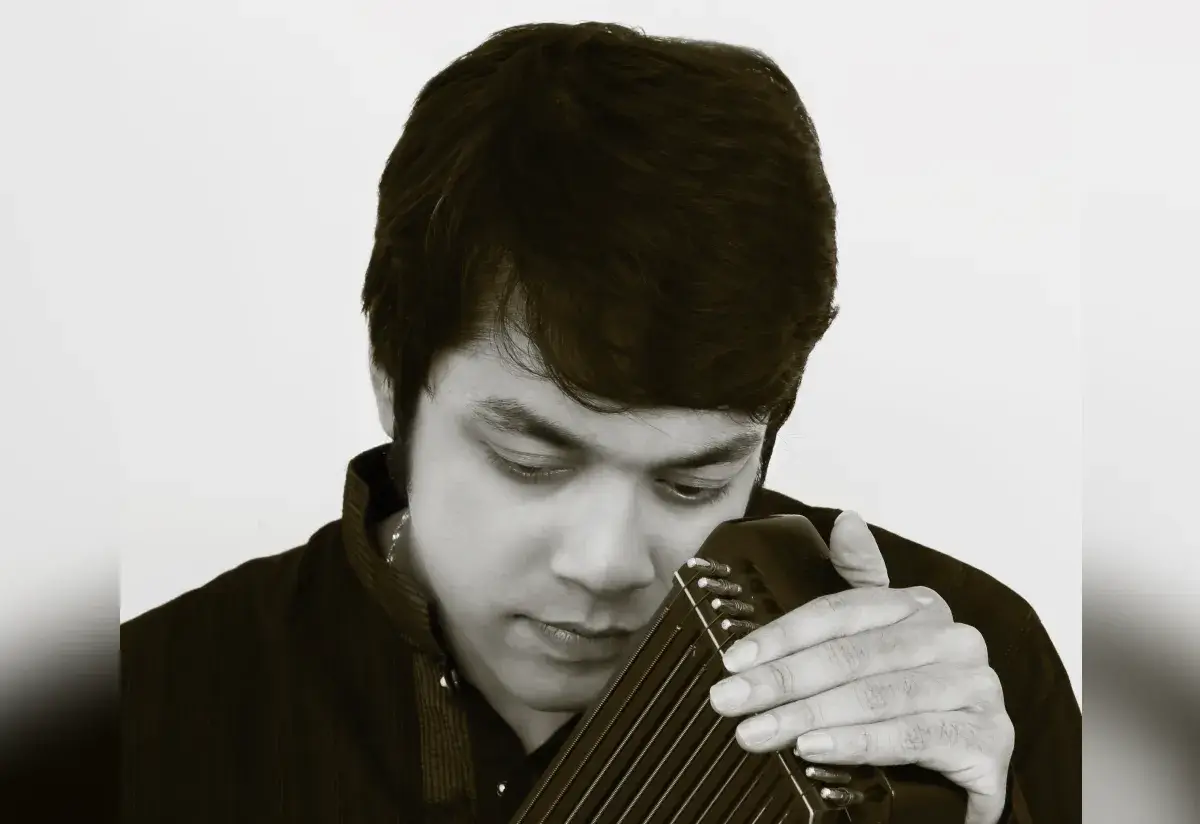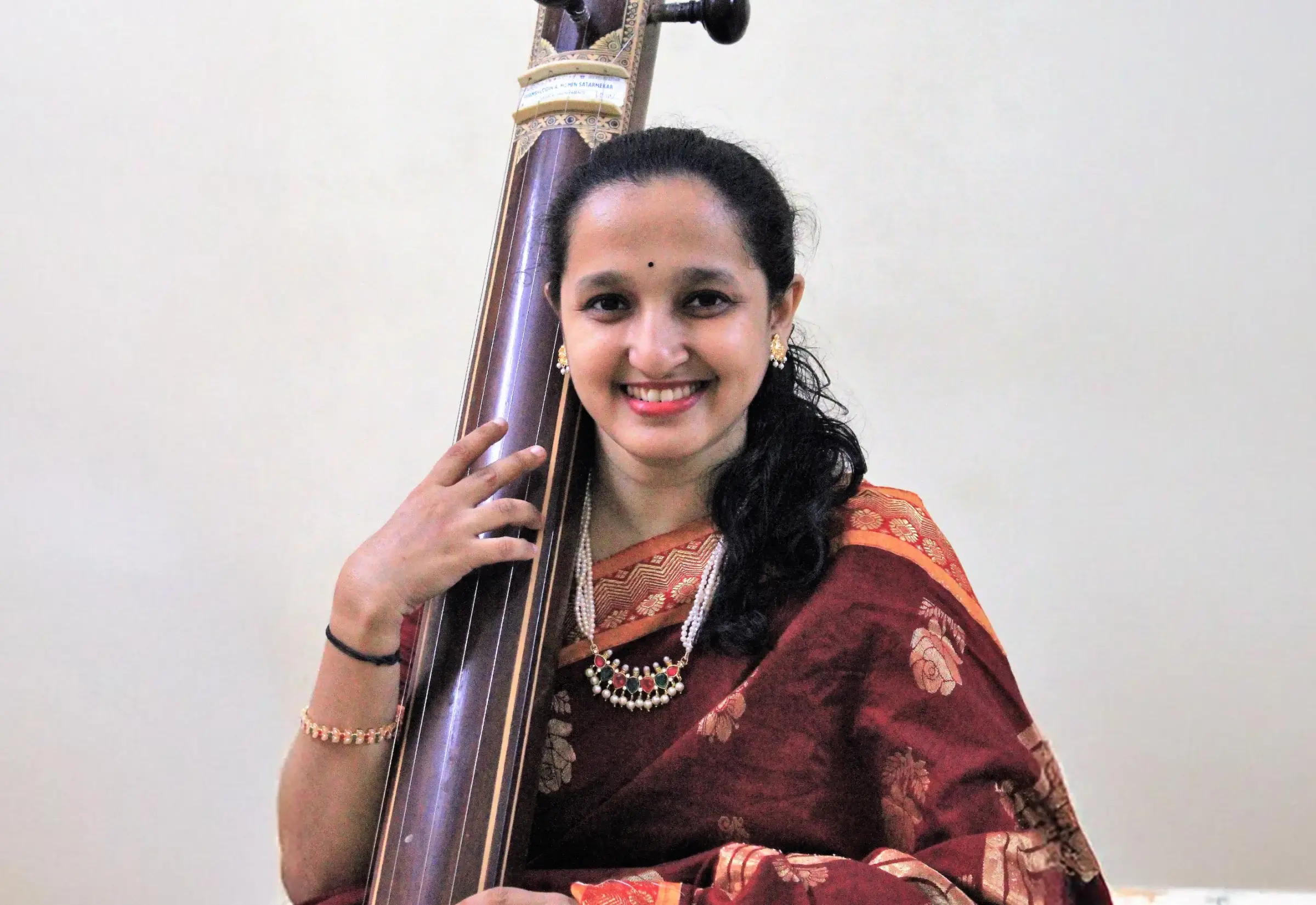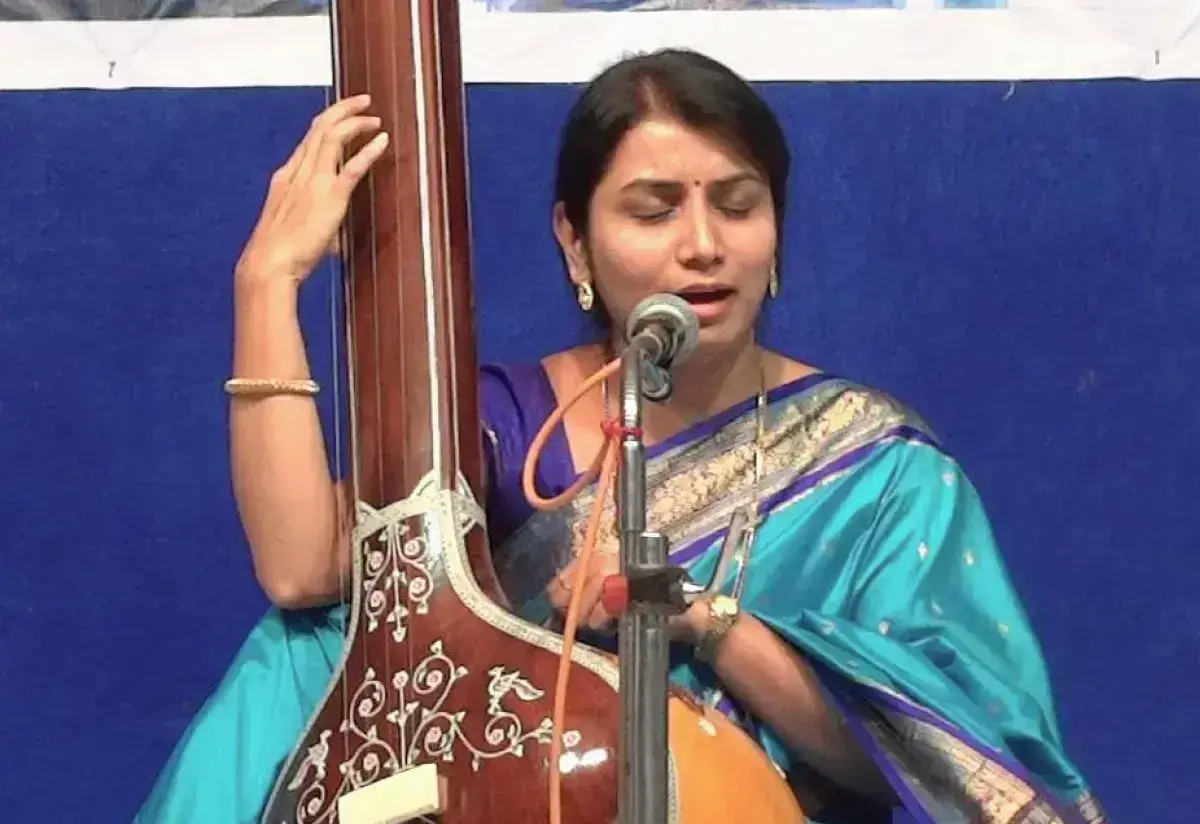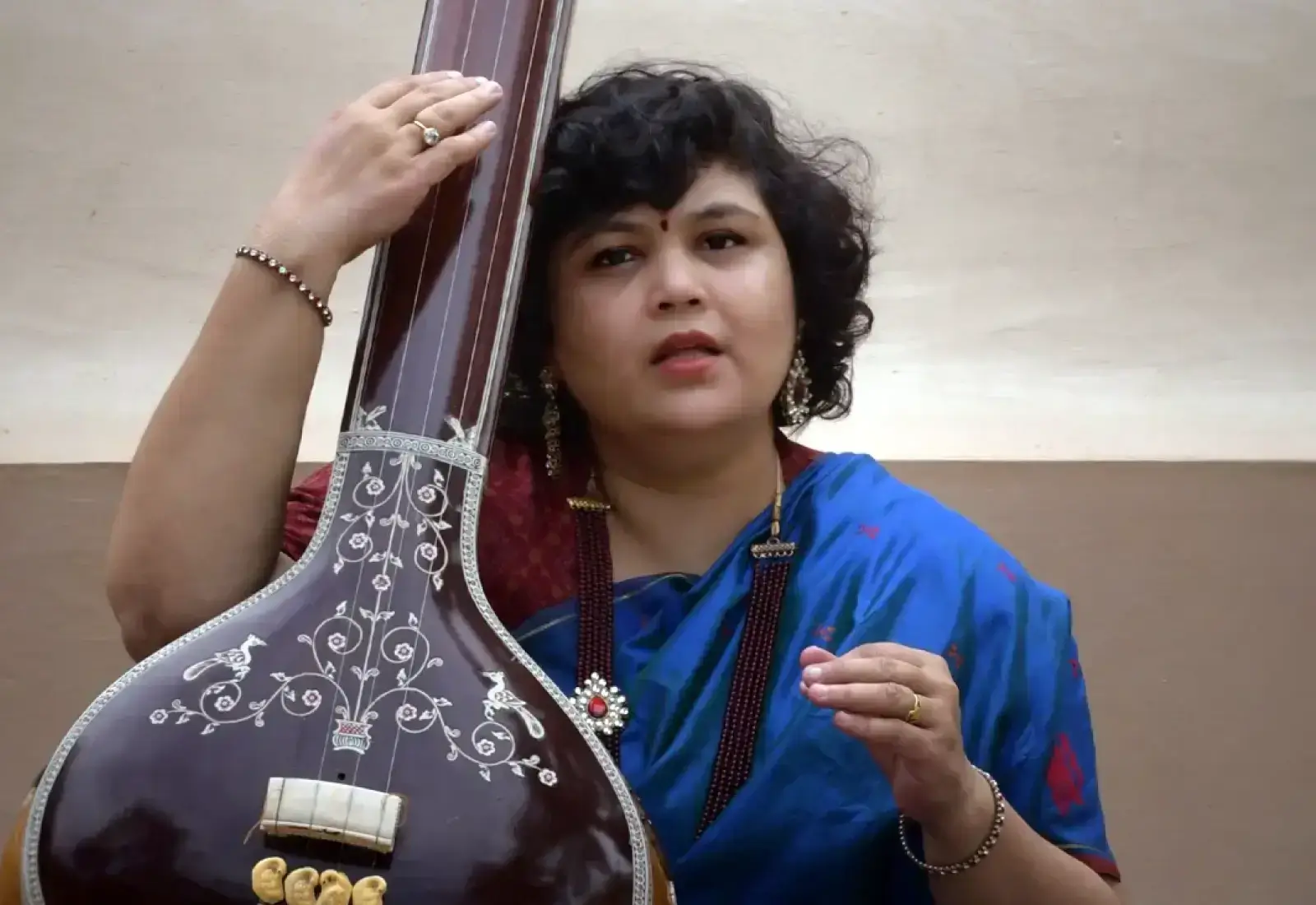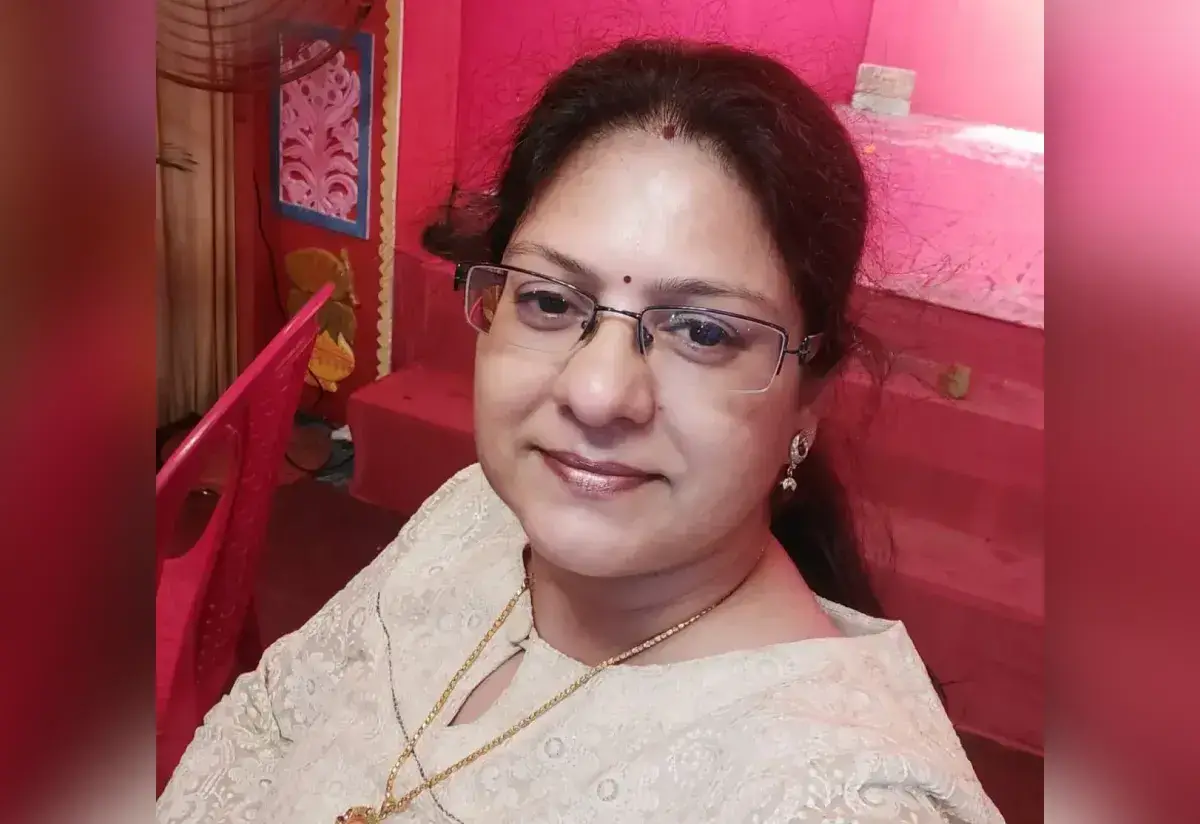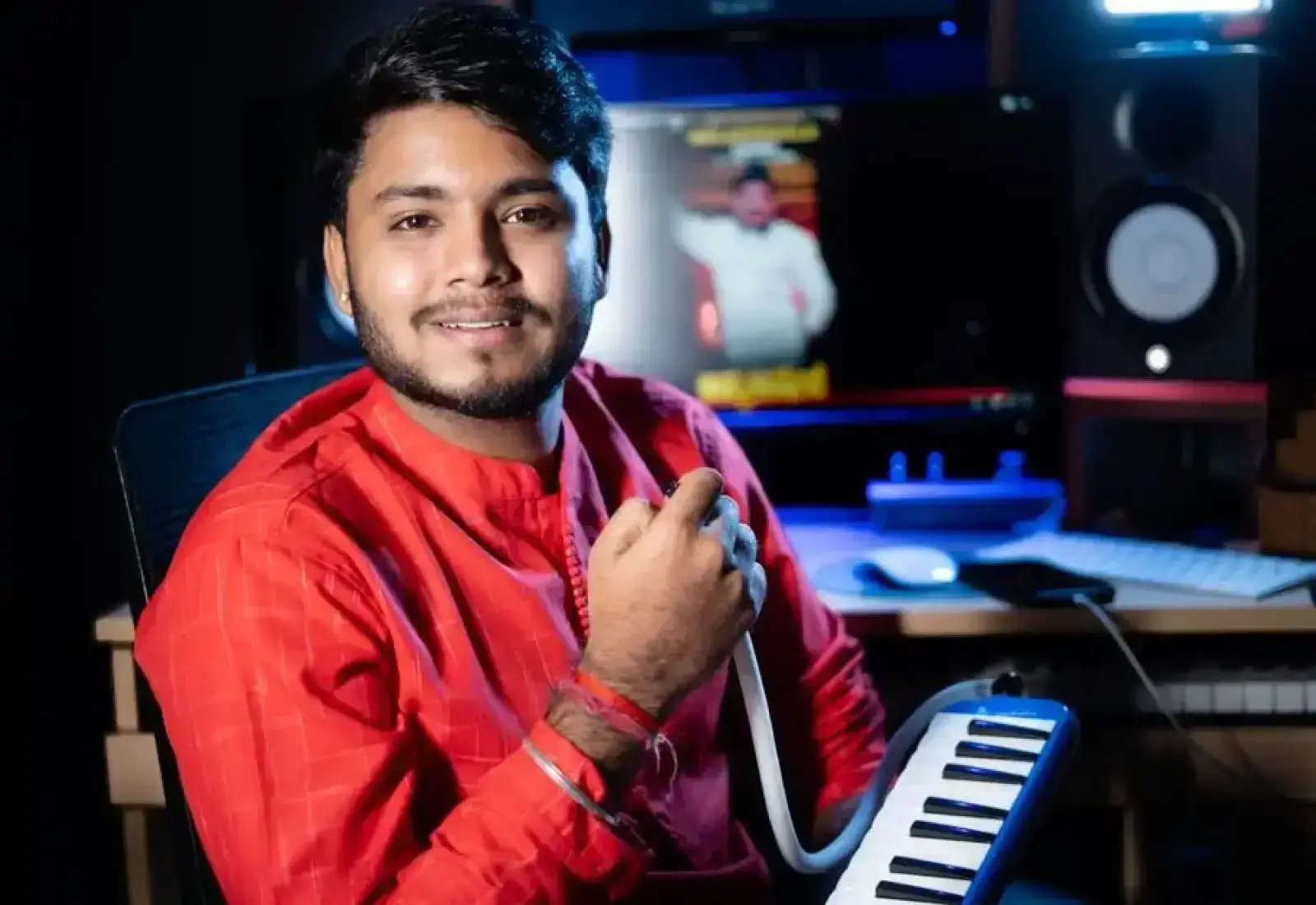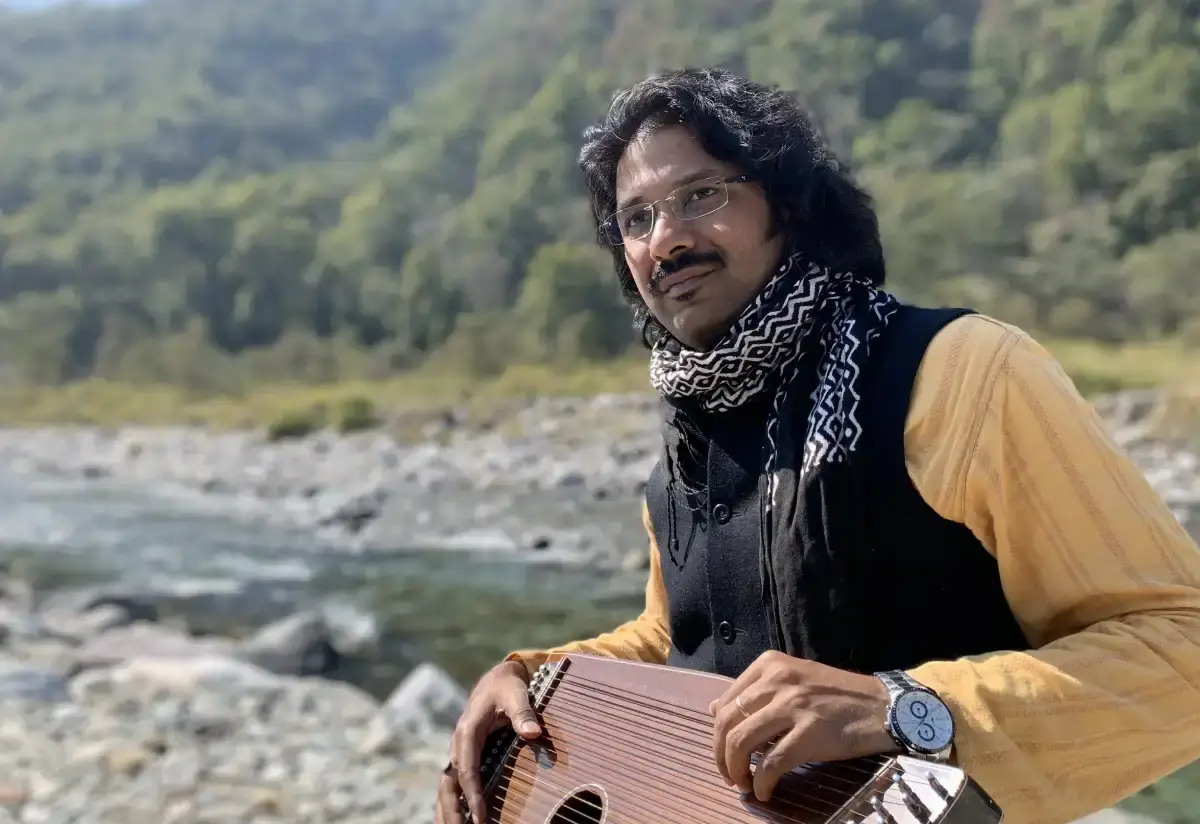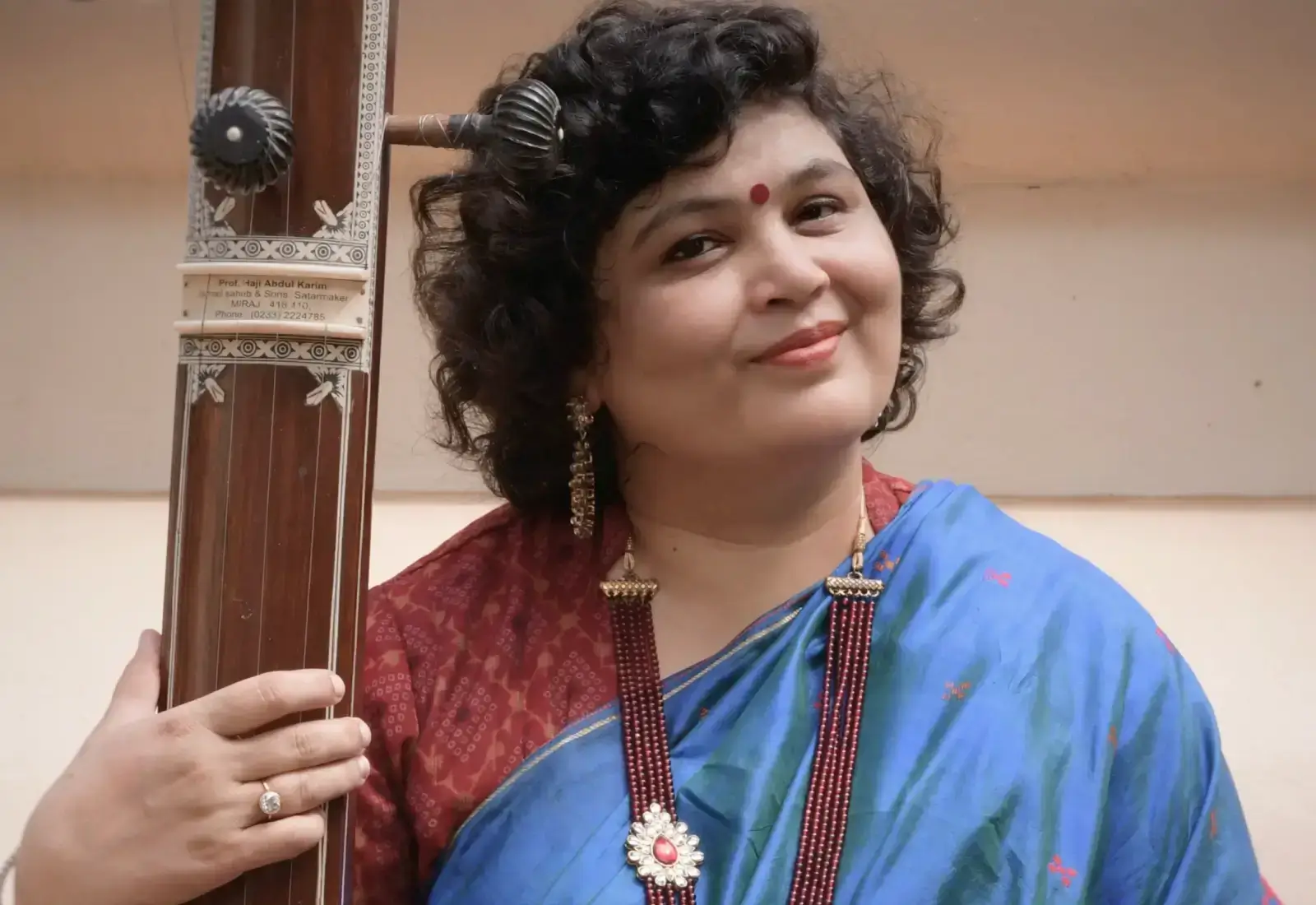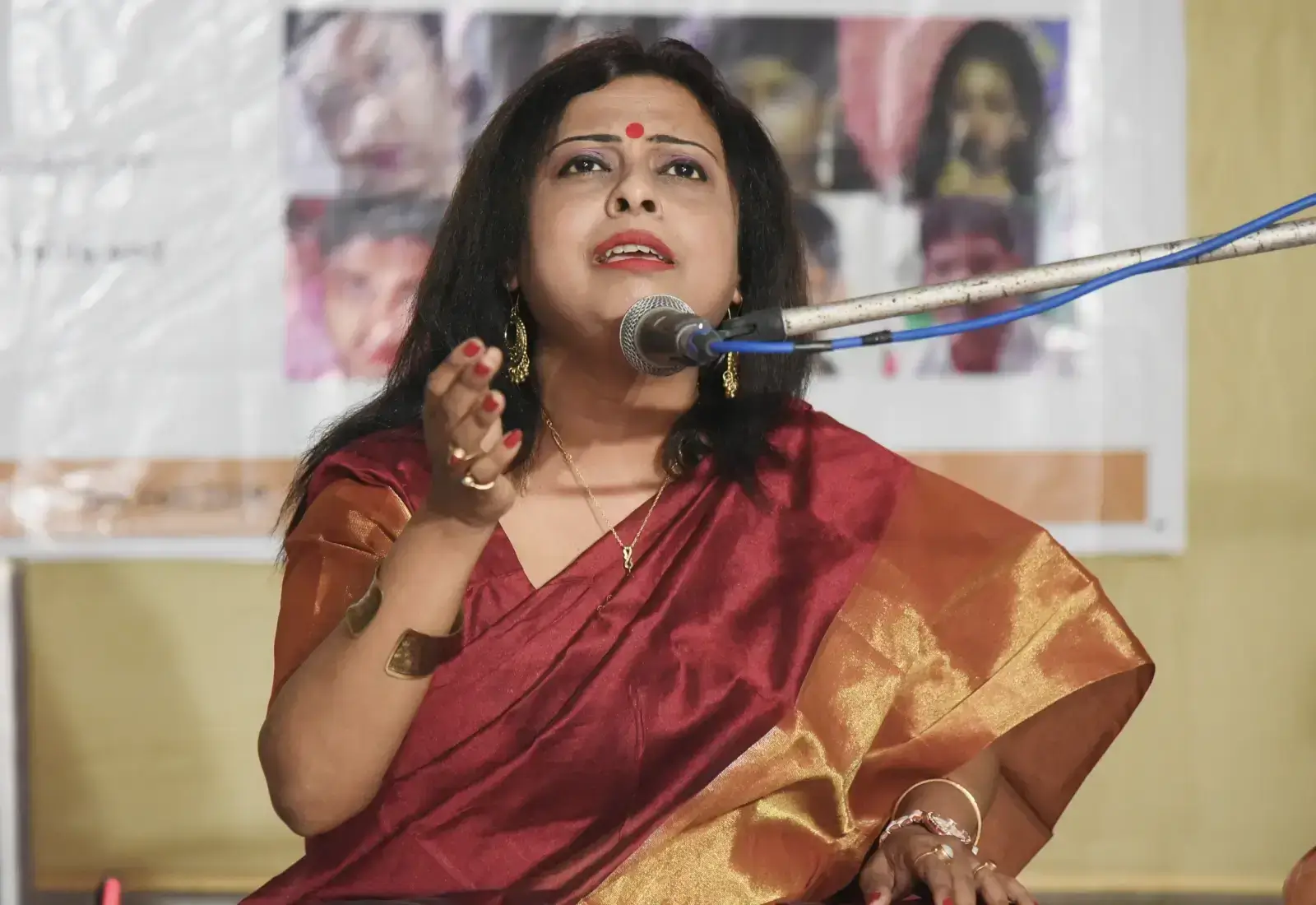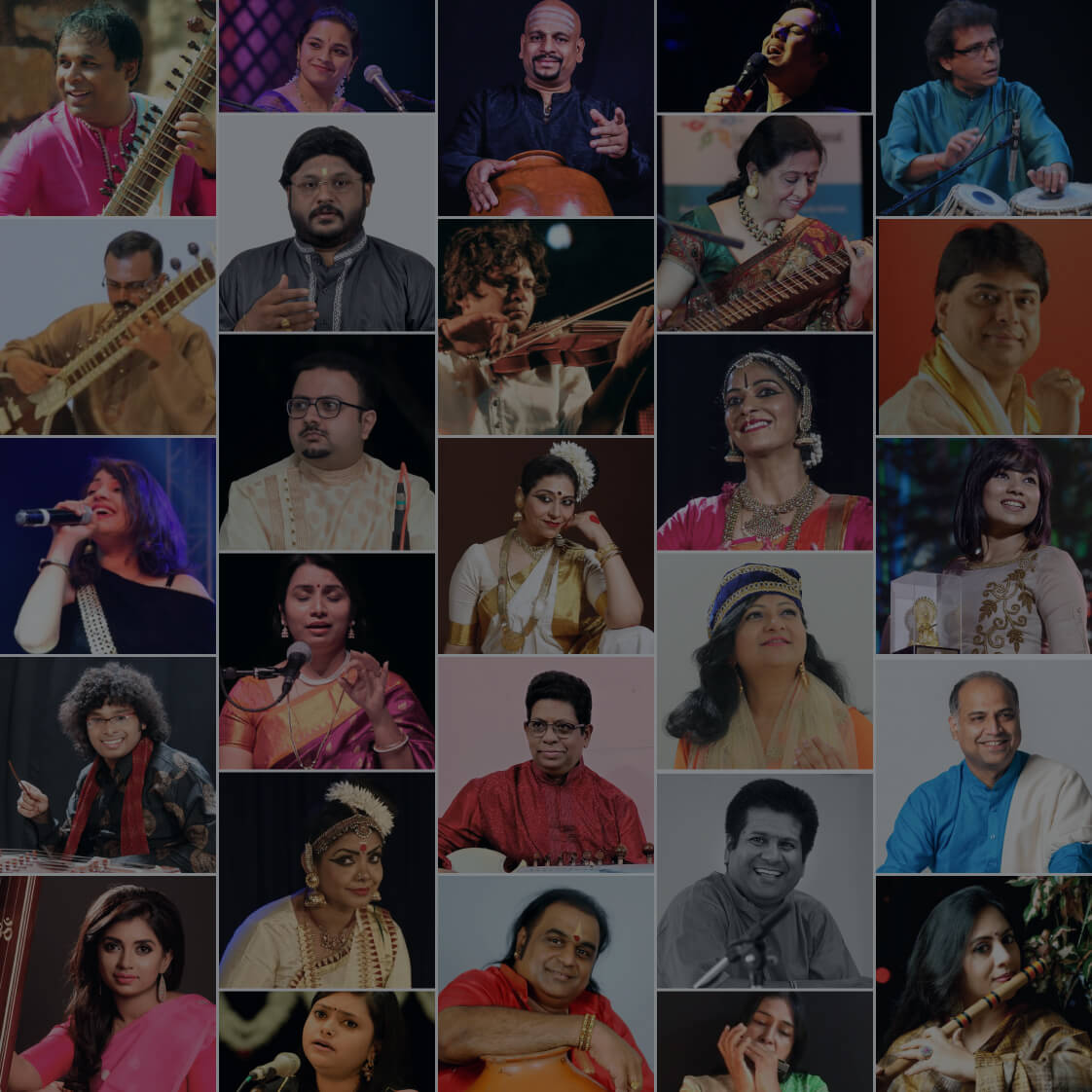Featured
Khayal Gayan: The Foundation of Gharanas in Hindustani Classical Music
Khayal Gayan can be rightfully acclaimed as the face of Hindustani classical music. It is a fascinating story of how the ancient musical tradition of India embraced Arabic influences only to become more euphonious.
Through the crest and fall of empires in India, and all the external influences that the country’s art and culture have gone through, Khayal Gayan has been the most blissful outcome.
Come, let’s map the journey of Khayal music and the Khayal Gharanas of India.
Gharanas of Khayal Gayan:
The Khayal Gharana lead to eminent musical ideologies that include:
- Dilli Gharana
- Agra Gharana
- Gwalior Gharana
- Kirana Gharana
- Bhendibazaar Gharana
- Jaipur-Atrauli Gharana
- Patiala Gharana
- Rampur-Sahaswan Gharana
- Indore Gharana
- Mewati Gharana
- Sham Chaurasia Gharana
Let's read in detail:-
Dilli Gharana
The very mention of Dilli Gharana rakes the names of the revered doyen of the oldest Khayal music lineage - Hazrat Amir Khasrau and Miyan Samti.
These two eminent masters laid the founding stones of the Dilli Gharana.
Delhi being a significant political and cultural hub has been the nidus for several art forms. And classical music was no exception.
It was the court of Shamsuddin Altamash in the early 13th century that became the nexus for musical maestros and brothers Mir Hasan Sawant and Mir Bula Kalawan, followed by Miyan Shams Sawant, Miyan Saamti Qawwal, and Ustad Mamman Khan.
This was the place where the spiritual music of the two worlds - the Kirtan of the Hindus and Sufism fused together to give way to Qawwali.
It further marries the court style of music to give the khayal gayaki of Dilli Gharana its profoundness.
Delhi Gharana has given unique gems to Hindustani classical music including Chand Khan, Nasir Ahmad Khan, Iqbal Ahmad Khan, and Tanveer Ahmad Khan.
Agra Gharana
Agra Gharana has given an extremely evolved legacy of music.
But more than that it has given stories that sing praises of the highly refined melody and musical prowess of the practitioners who cultivated this khayal gayan shaili or musical tradition.
Nayak Gopal of Devagiri, later renamed Nauhar Bani is believed to be the founder of the Agra Gharana.
His descendant Sujan Das Nauhar, who came to be known as Haji Sujan Khan after converting into Islam is the celebrated musician who could light lamps by rendering Deepak Raga.
The descendants of Nauhar Bani formed the celebrated and most revered music composers and performers at the Mughal court until Aurangzeb took over the throne.
It was then that the Nauhar Bani clan took their lineage to Agra.
One has to be bestowed with divine blessings to be able to pursue music.
And that too one must devour himself completely to music to be able to achieve such blessings.
Nothing validates this statement better than the story of the Agra Gharana, Ghagge Khuda Baksh, one of the descendants of Nuhar Bani and a significant contributor of the Agra Gharana.
Always ridiculed for his hoarse voice, Ghagge Khuda Baksh left home and reached Gwalior to receive training from Natthan Peer Baksh.
Later, when he returned to Agra after completing his vocal training, he seemed to have been transformed so much that his khayal gayaki left his listeners in tears.
Ghagge Khuda Baksh’s grandson - Ustad Faiyaz Khan Sahib is said to have taken Agra Gharana to the zenith of success, accolades, and acclaims in the early 20th century.
Ustad Faiyaz Khan is known for his extensive vocalization and bringing in the influence of Dhrupad into the ‘nom-tom’ alaap of the Agra Gharana.
He toned down the sombreness of the Dhrupad alap to make it more melodious and pleasing to the ears.
Gwalior Gharana
Gwalior Gharana of Khayal music was founded in the mid-sixteenth. Raja Manshingh Tomar is said to have laid its foundation.
One of the Navratnas of Akbar, Tansen was from Gwalior. Singers and musicians from Gwalior were always revered at the Mughal court for their stupendous musical prowess.
Gwalior Gharana flourished during the time of Naththan Khan, Natthan Pir Baksh, and their descendants Haddu, Hassu, and Natthu Khan.
They take their lineage from Nemat Khan, the celebrated Dhrupad singer in the court of Mohammad Shah.
Later Gwalior Gharana of music traversed far and wide through their students and hence, have influenced several other musical ideologies.
Natthan Pir Baksh trained Ghagge Khuda Baksh of Agra Gharana. Subsequently, the disciples of Hassu Khan took the gayaki of Gwalior Gharana to Maharashtra.
The evolved Khayal gayaki of the Gwalior Gharana received accolades in Punjab, Sindh, at the court of the Nizam of Hyderabad, and even in Afghanistan.
Gwalior Gharana has given us famous Khayal singers like Bade Ghulam Ali Khan and Farida Khanam.
Kirana Gharana
Kirana gharana is lucky to have been influenced by Sufism as well as Carnatic music.
It traces back to the 13th century, when a Dhrupad practitioner, Gopal Nayak who converted to Islam and thus infused the Muslim Khayal styles with the Dhrupad.
The Kirana Gharana evolved much more in the early 20th century when Abdul Karim Khan, a frequent visitor to the Mysore court, assimilated elements of the Carnatic music styles.
Kirana Gharana has given several gems to Hindustani Classical music such as Proudh Gandharva Pandit Viswanathbuwa Jadhav, Bhimsen Joshi, Prabha Atre, and Gangubai Hangal among others.
Bhendibazaar Gharana
The founding stone of the Bhendibazaar Gharana was laid by brothers – Nazim, Chajju, and Khadim Hussain Ali Khan.
They received their initial training in khayal gayan from their father, Ustad Dilawar Hussain Khan, and later came under the tutelage of eminent masters of Dagar Gharana’s Ustad Inayat Khan and Rampur Sahaswan Gharana’s Inayat Hussain Khan.
By the end of the nineteenth century, the three brothers moved from Moradabad to the Bendibazaar of Bombay (then).
As intriguing as the name of the place might sound (let us keep that story for some other day), the musical confluence that this place developed over time would emerge to be the pathfinder for several eminent musicians and vocalists of the era.
Notable exponents of Bhendibazaar Gharana include Aman Ali Khan and Anjanibai Malpekar.
Some household names of singers who received training under these two torchbearers of Bhendibazaar Gharana include – the nightingale of India – Lata Mangeshkar, Manna De, Kumar Gandharv, Begum Akhtar, and Naina Devi.
Jaipur-Atrauli Gharana
Also known as Jaipur Gharana, Atrauli-Jaipur Gharana was founded in the late 19th century.
People also call this musical fraternity Alladiyakhani Gayaki after the name of its progenitor - Alladiya Khan.
Drawing its roots from Dagar-bani of Dhrupad, the gayaki of Jaipur-Atrauli Gharana also bore the influence of Gauhar-bani and Khandar-bani traditions.
Nath Vishwambhar who was known for singing the Sanskrit shlokas in different Ragas is credited to have endowed the Jaipur-Atrauli Gharana.
This musical legacy has been ornamented with esteemed music composer Swami Haridas who had trained historic figures in the musical fraternity, such as Tansen and Baiju Bawra.
Some of the celebrated torchbearers of this tradition include Ashwini Bhide-Deshpande, Mallikarjun Mansur, and Kesarbai Kerkar among others.
Patiala Gharana
The inception of the Patiala Gharana dates back to the late 19th.
The early doyens of this Gharana, Fateh Ali Khan, and Ali Baksh Jamail were known for their Khayal, Gazal, and Thumris.
Patiala Gharana is known for its exuberance, its intricate repertoire of tan and impeccable laykari. It merges styles from other Gharanas to enhance the aesthetic appeal of the Khayal.
Though such improvisations in their Khayal gayaki rake criticism from absolute purists.
Celebrated exponents of this Gharana of music include the likes of Bade Gulam Ali Khan, Ajoy Chakrabarty, and Vasantrao Deshpande.
Rampur-Sahaswan Gharana
Incepted in the mid-nineteenth century by Inayat Hussain Khan, Rampur-Sahaswan Gharana originated from the royal court of Rampur State in Uttar Pradesh.
Here, Inayat Hussain Khan’s father Mehboob Khan rendered Khayal as a chief singer.
Inayat Hussain Khan carried the family tradition along with his brothers-in-law - Ustad Fida Hussain Khan, Haider Khan, and Padma Bhushan Ustad Mushtaq Hussain Khan.
This musical tradition earns significant inputs from the Gwalior Gharana when Inayat Hussain marries Haddu Khan’s daughter.
The celebrated exponents of Rampur-Sahaswan Gharana include Nissar Hussain Khan, Mushtaq Hussain Khan, and Rashid Khan among others.
Indore Gharana
Indore Gharana was founded by Amir Khan in the mid-twentieth century.
Being a contemporary exponent of Hindustani classical music, Amir Khan envisioned the Khayal gayaki to emerge in a new way.
As the chief doyen of the Indore Gharana, he improvised the way Khayal is composed and sung.
Amir Khan has also given his voice in several Bollywood movies.
He is supportive of making Khayal Gayaki more inclusive of several musical compositions and styles that were not acceptable earlier.
He has established the Indore Gharana with the objective of creating a space where all the differences and disputes between all the Khayal Gharanas can be warded off.
So that they can have a unified identity. Most importantly, he wanted to create a discipline that upholds the sanctity of the ragas.
As one of the youngest gharanas, Indore Gharana claims to be the modern face of Hindustani classical music.
After the demise of Amir Khan, his disciples - Pandit Amarnath, Sankar Lal Mishra, Purvi Mukherjee, and Kankana Mukherjee are taking the tradition ahead.
Mewati Gharana
Founded in the mid-nineteenth century by Ghagge Nazir Khan and Wahid Khan, Mewati Gharana draws its roots from three Gharana.
Being the descendants of the Qawwal Bacchon ka Gharana, both received their initial training from here.
Later, they imbibed styles and ideologies from Gwalior Gharana, Kirana Baaj, and Dagarbani Baaj.
The Gharana takes its name from Mewat, the place of residence of its founding masters. Their compositions beautifully infuse the ideologies of Sufism with Bhakti ras.
Celebrated exponents of Mewati Gharana include Pandit Maniram, Pandit Jasraj, and Sitarist Rais Khan among others.
Sham Chaurasia Gharana
The inception of Sham Chaurasia Gharana dates back to the 16th century.
Its progenitors Chand Khan and Suraj Khan were contemporaries to Tansen.
The khayal gayaki of this Gharana specializes in Dhrupad style and earns its repute for their incredible duet vocal performances.
Going forward, Sham Chaurasia Gharana finds maestros Vilayat Ali Khan who leaves his mark as an acclaimed Dhrupad performer.
Thereafter, his sons Nazakat Ali Khan and Salamat Ali Khan take up the baton.
Post partition, this family moved to Pakistan.
Ending Notes…
From its inception to the present times, the compounding growth trajectory of the Khayal Gharanas has been incredible. It has given some of the most cherished musical maestros to the country who have spread their music far and wide.
I would like to end with the words of one of the most revered musicians of our times, Bismillah Khan - “Mere malik mujhe sur baksh de. Sur mein woh taseer paida kar ki ankhon se sacche moti ki tarha angadh ansu nikal aaye.”
It translates to - ‘My Lord, give me a note. And bestow that note with the power that it can bring out tears of ecstasy from the eyes.”


